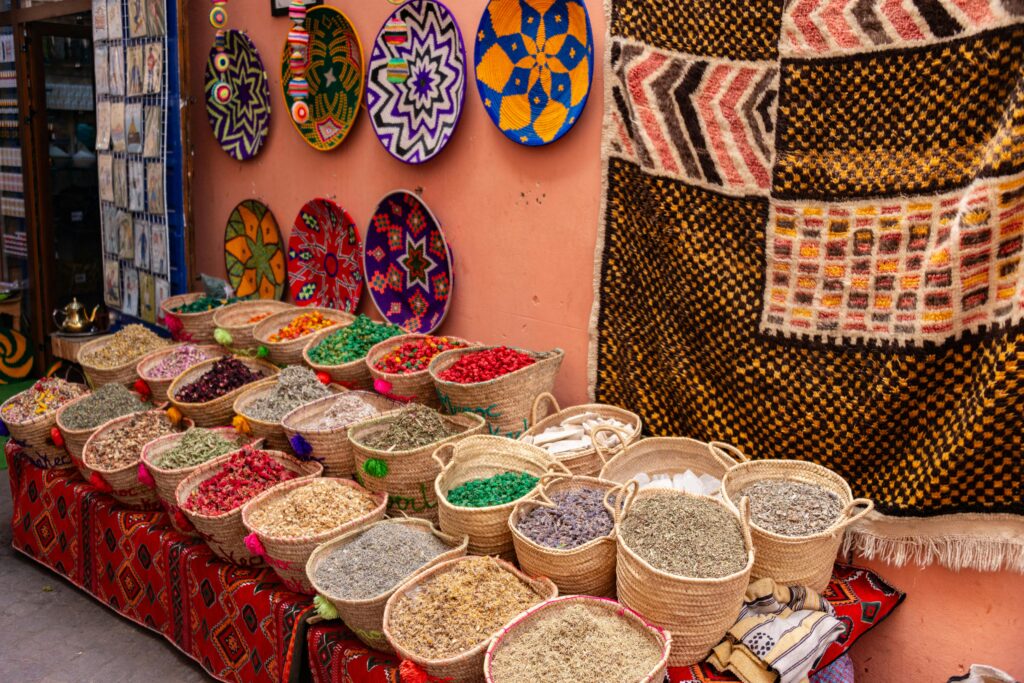Morocco Shopping Guide
Morocco Shopping Guide: What to Buy & Where to Find the Best Deals
Travel in Morocco with Your Trusted Travel Partner in the Heart Of Morocco
Table of Contents
ToggleMorocco is a fascinating and exotic destination, offering countless reasons to visit. With its rich and ancient artisan traditions, the allure of shopping is everywhere. This comprehensive Morocco shopping guide has been crafted to assist travelers in navigating the vibrant markets and making the most of their shopping experience along their morocco travel itinerary.
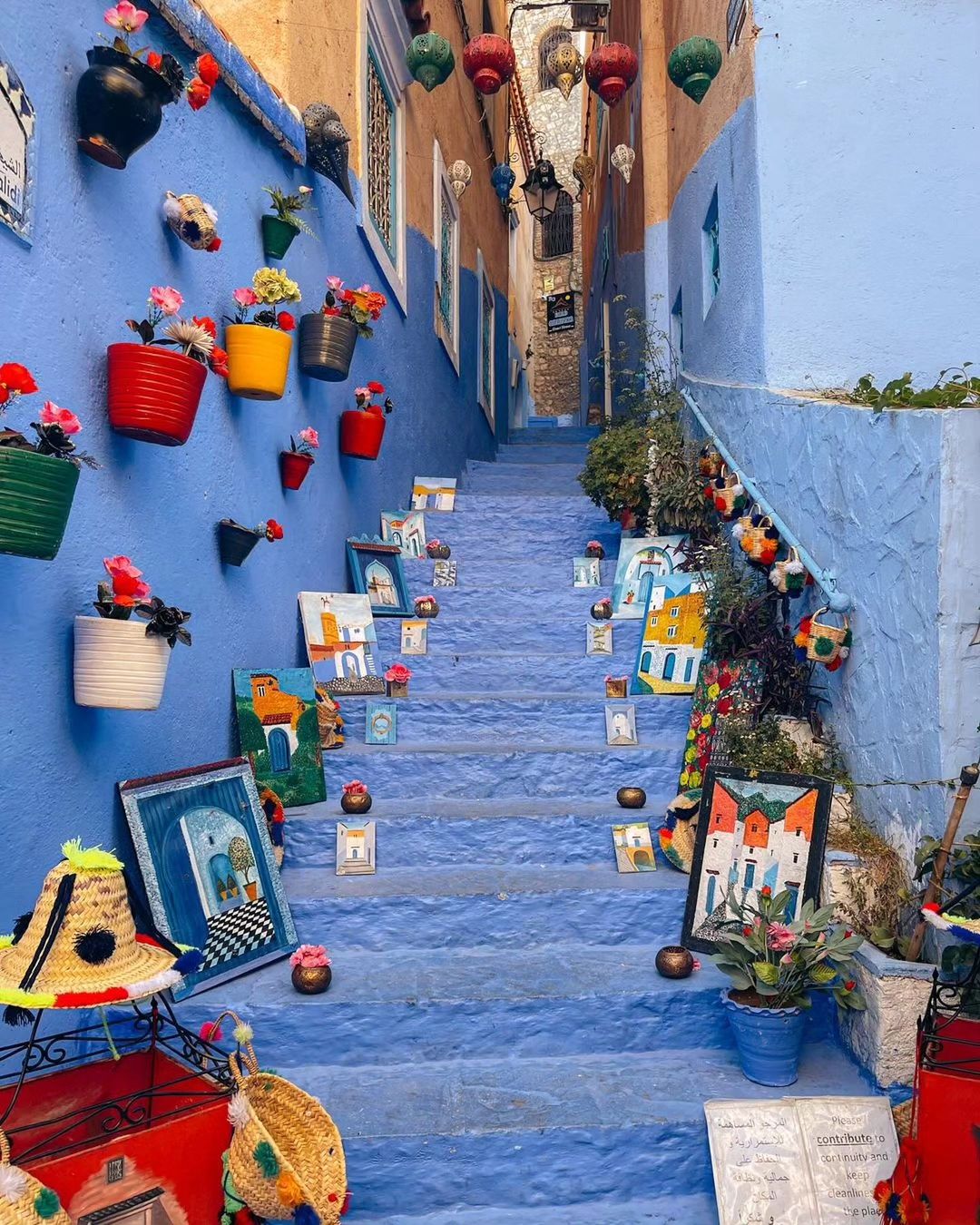
Ceramics
Carpets & Rugs
Brassware
Babouches (highly recommended)
Moroccan Pillows & Cushion Covers
Morocco Leather
Tea Sets & Glasses
Antiques
Paintings
Clothing
Jewellery
Purses & Handbags
Argan Oil, Olives, Dates & Sweets
1. Ceramics
Ceramics are a must-have for any shopping experience in Morocco. Known for their vibrant colors and intricate designs, Moroccan ceramics have a rich history rooted in Islamic and Spanish influences.
From iconic Moroccan ashtrays to exquisite tiles and mosaics, the markets offer an overwhelming variety. Floral and geometric patterns dominate, showcasing deep colors and fine details. Shoppers can find everything from small items like jars and plates to larger pieces such as tajines, vases, and platters. The only limit is how much can be carried home.
The Medina offers a wide range of handmade artisan creations, while contemporary designs can be found in upscale stores like those on Rue Majorelle in Marrakech.
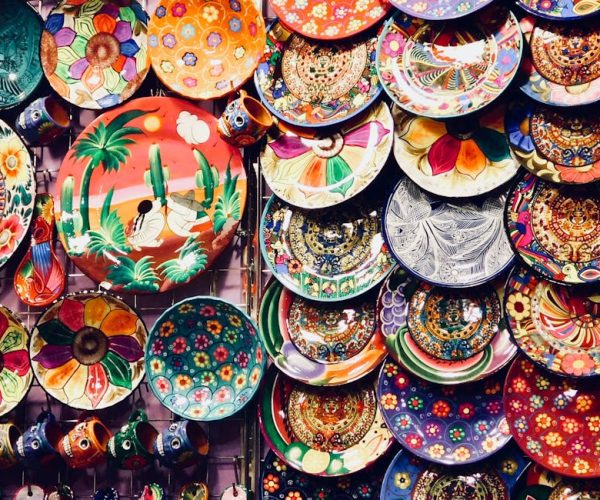
Ceramics often have that slightly rough and handmade feel, which is part of their charm.
Safi pottery is the most recognisable and is very different from Tamegroute pottery, which is a plain green colour.
2.Carpets & Rugs
Rug crafting is an ancient Moroccan tradition passed down through generations, especially in remote villages. Typically made of wool and hand-knotted or woven, Moroccan tribal rugs are a significant part of the country’s heritage and lifestyle. These rugs, often created by Berber tribes, come in various sizes and styles and make for a cherished addition to any home—a truly prized Moroccan souvenir.
Shopping for a Moroccan rug is a thoughtful process that usually takes place in the heart of a bustling souk. It’s important to research and consider how a rug will fit into your home. Prices can vary widely, so preparation for negotiation is key. One compelling reason to invest in a Moroccan wool rug is its longevity; a high-quality piece can last a lifetime.
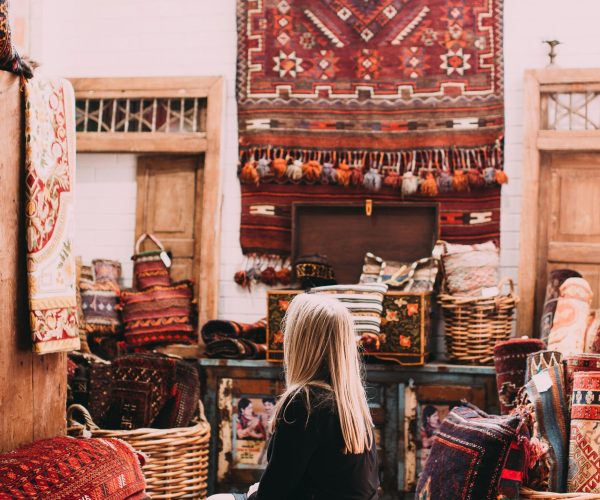
3. Brassware
Moroccan artisans have mastered the craft of metalwork for centuries, with hammered brass techniques gaining prominence since the 12th century. Commonly used metals include copper, silver, tin, nickel, and aluminum, but brass remains the favorite. Cities like Fez and Marrakech are renowned for their exquisite homewares, particularly brass lanterns and intricate Moroccan mirrors.
A Moroccan pendant light can add a touch of elegance to any decor. Round brass trays and Moroccan hanging lanterns are also popular choices for shoppers seeking authentic pieces.
Moroccan-style lighting, often understated, creates a warm and inviting atmosphere, making it a timeless addition to any space.
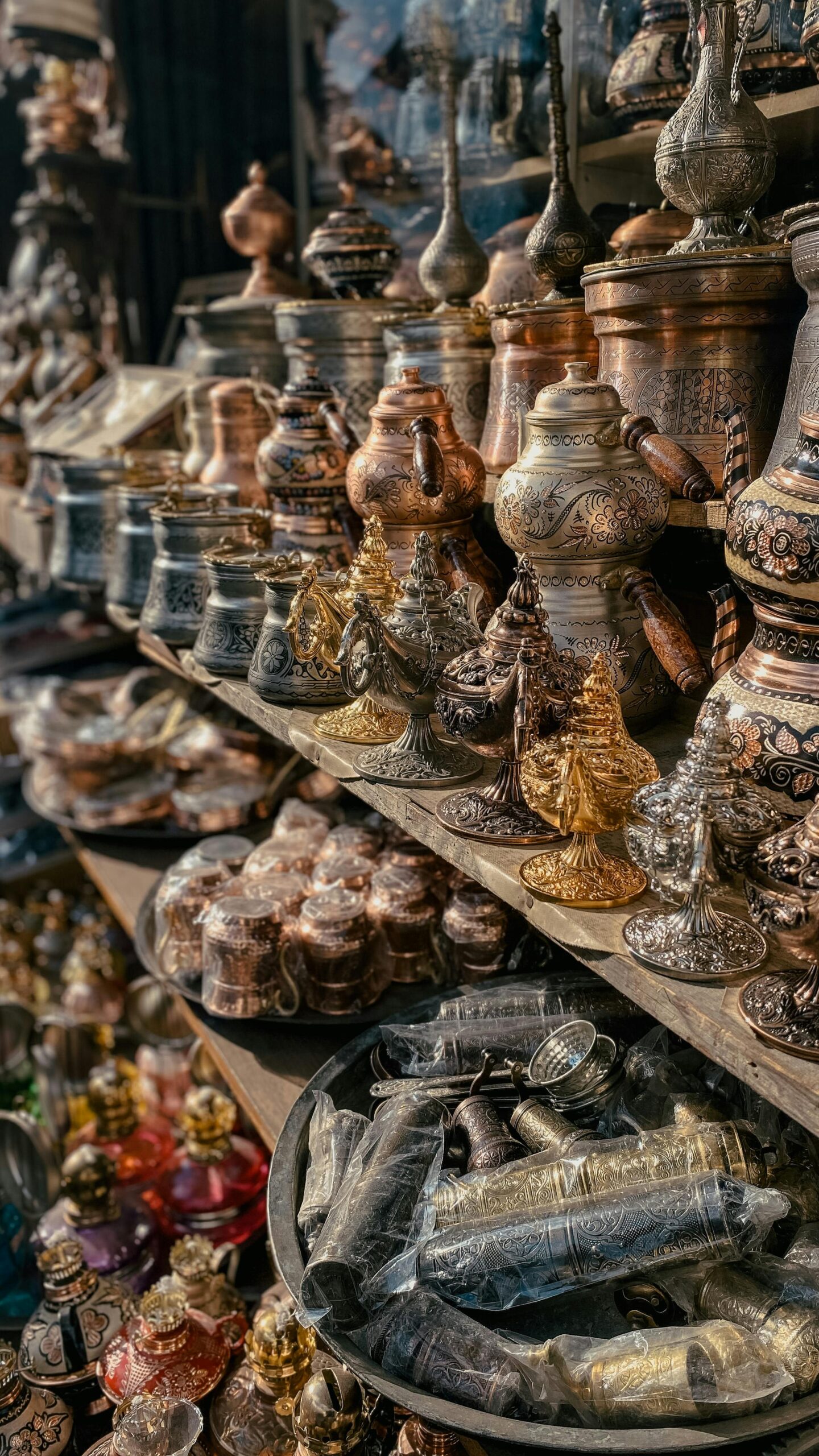
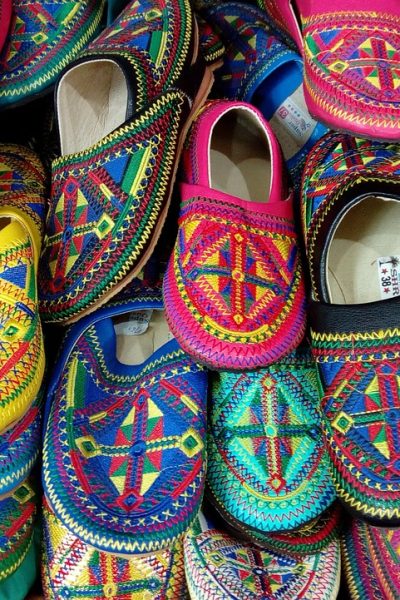
4. Babouches
Quality Moroccan slippers should be soft and mould to your feet after just a few wears. You can also find babouche shoes with a thicker rubber sole.
Rows of Moroccan leather slippers, known as “babouche,” are an iconic sight in Morocco. These vibrant and textured slippers not only capture the essence of Moroccan craftsmanship but also make for fantastic photography.
The babouche slippers are prized for their comfort and versatility, making them a popular purchase among travelers. Available in a range of colors and designs, they are an excellent keepsake or gift that embodies the charm of Moroccan culture.
5. Moroccan Pillows & Cushion Covers
With a variety of styles and designs, pillow covers make an excellent choice if you’re unsure what to buy in Morocco but want to add an exotic touch to your home. Moroccan cushions are easy to transport and offer a more subtle statement in décor compared to large carpets.
Pillows and cushions hold a special place in Moroccan life, as sitting on the floor is a common tradition. These pieces not only enhance the aesthetic of your space but also reflect the warm, inviting nature of Moroccan culture.

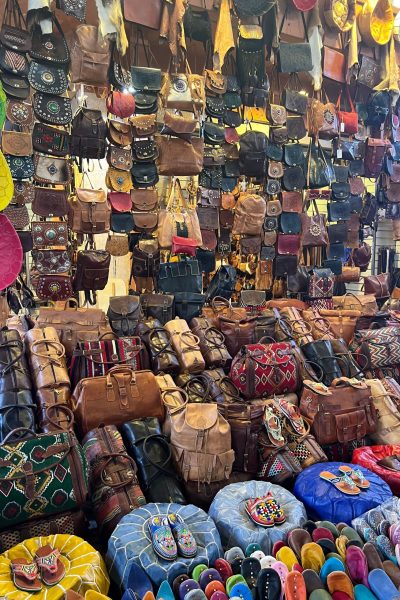
6. Morocco Leather
While Marrakech leather is notable, the finest quality is found in Fez, home to a tanning and dyeing tradition dating back to the 13th century. The scent of leather often fills the air in the souks of Marrakech and other cities, adding to the sensory experience of shopping.
Moroccan leather goods come in diverse forms, from handbags and wallets to belts and various styles of shoes. In the Medina, quality may vary, but chic stores in Marrakech offer some of the finest leather items. For a practical and stylish souvenir, small leather wallets are an excellent choice to hold local currency or keepsakes.
7. Tea Sets & Glasses
While Marrakech leather is notable, the finest quality is found in Fez, home to a tanning and dyeing tradition dating back to the 13th century. The scent of leather often fills the air in the souks of Marrakech and other cities, adding to the sensory experience of shopping.
Moroccan leather goods come in diverse forms, from handbags and wallets to belts and various styles of shoes. In the Medina, quality may vary, but chic stores in Marrakech offer some of the finest leather items. For a practical and stylish souvenir, small leather wallets are an excellent choice to hold local currency or keepsakes.

8. Paintings
Moroccan art is vibrant and in high demand, with many contemporary artists gaining international recognition. While the art market features high-value pieces, the Medina offers more affordable artwork. These simpler, naive-style paintings often make excellent souvenirs. In places like Chefchaouen, captivating blue and white street scenes can be found, providing a charming reminder of the region’s unique beauty. These artworks may not carry the same artistic weight as the more expensive pieces, but they remain a delightful and memorable purchase.
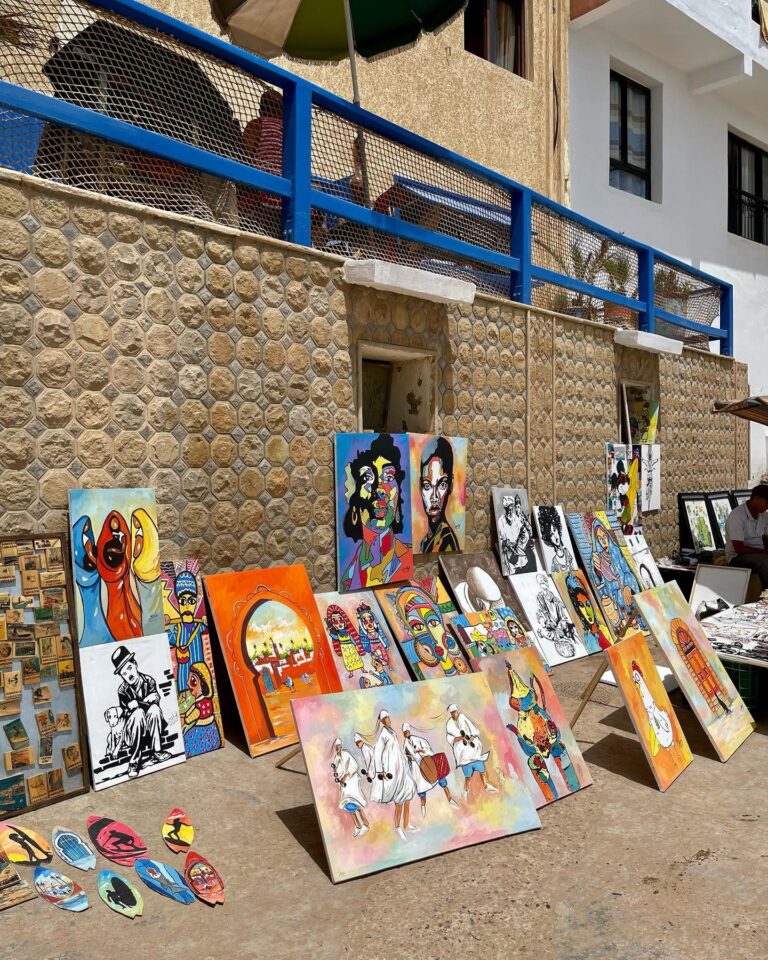
9. Clothing
Moroccan fashion is known for its long, flowing garments, offering a wide variety to choose from. While the Medina features many affordable pieces with varying quality, designer stores stand out by incorporating traditional silk trimmings into high-quality attire. La Maison du Caftan in Marrakech is a prime destination for those seeking a blend of luxury and tradition, making it a must-visit for fashion enthusiasts.
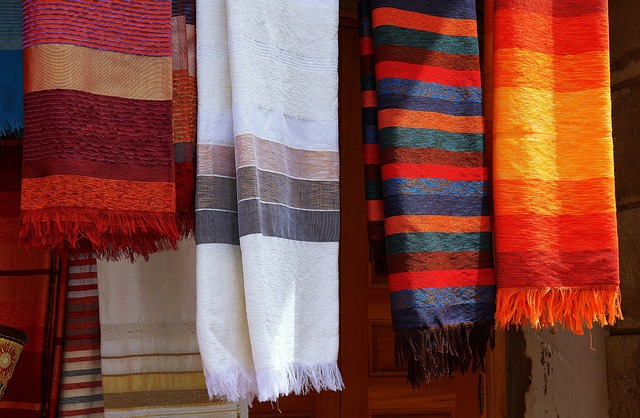
10. Moroccan Textiles
Moroccan women produce some very fine embroidery or weaving, and some of it can be quite expensive.
In Rabat, the women’s cooperative in the Oudayas quarter offers high-quality handmade textiles. In a world dominated by mass-produced fashion, Morocco provides a unique opportunity to discover beautiful, vibrant fabrics. For those with a creative touch, these textiles can be used to create personalized soft furnishings, adding a touch of Moroccan craftsmanship to any home.
11. Baskets & Wooden Spoons
Shopping in Marrakech offers endless options, but if you’re looking for more Moroccan gift ideas, consider basketry and wooden spoons. Basketry is abundant in Morocco, available in a variety of sizes. The simple palm fiber baskets with leather handles are particularly charming, and many people collect them as souvenirs.
While they can be bulky, these baskets are some of the finest available. On the other hand, wooden spoons make excellent Moroccan keepsakes and are much easier to pack, making them a practical gift choice.
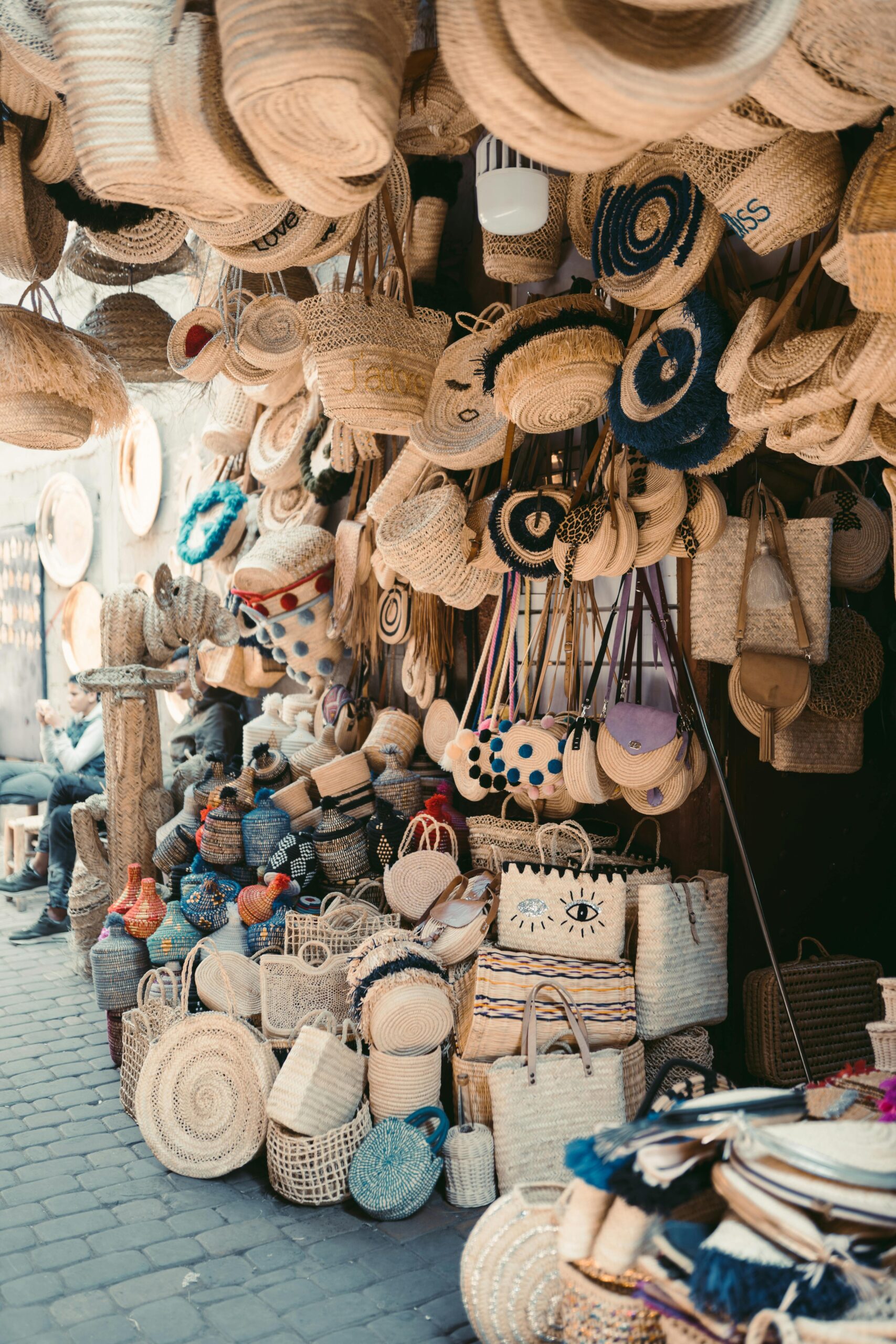
12. Cosmetics
In the markets, seek out rose water and orange blossom water for a fragrant souvenir. For beauty enthusiasts, kohl and face tint can be found in the Medina. Argan oil products, known for their many benefits, are widely available and should be included in any Marrakech shopping guide.
In Chefchaouen, make sure to visit La Botica de la Abuela Aladdin for a unique shopping experience, where you can find exquisite oil perfumes and musk, perfect for taking a piece of Morocco’s scent with you.
A trip to Morocco wouldn’t be complete without experiencing its captivating fragrances. The scents of orange blossom, mint, roses, amber, and spices evoke memories of the country’s rich sensory culture. Today, you can bring these aromas home through locally made cosmetics. A visit to a luxurious spa introduces you to Moroccan body care essentials like ghassoul and savon noir.
13. Dates & Sweets
Food is an essential part of the Morocco shopping experience. Local markets are filled with stalls offering olives, dates, peanuts, dried figs, and a variety of sweet biscuits and cakes.
Morocco’s art of living is reflected in the small details of hospitality, where every bite is a taste of local culture.
Olives are commonly served as appetizers in restaurants, and the Medina offers a wide range of flavorful options. Be sure to sample these fresh, aromatic snacks. Moroccan sweets, which blend spices and floral notes, also make excellent gifts.
Casablanca’s Habbous medina and Marrakech’s Gueliz district are home to some of the best patisseries, where you can find exquisite treats to bring home and share the sweet side of Morocco.
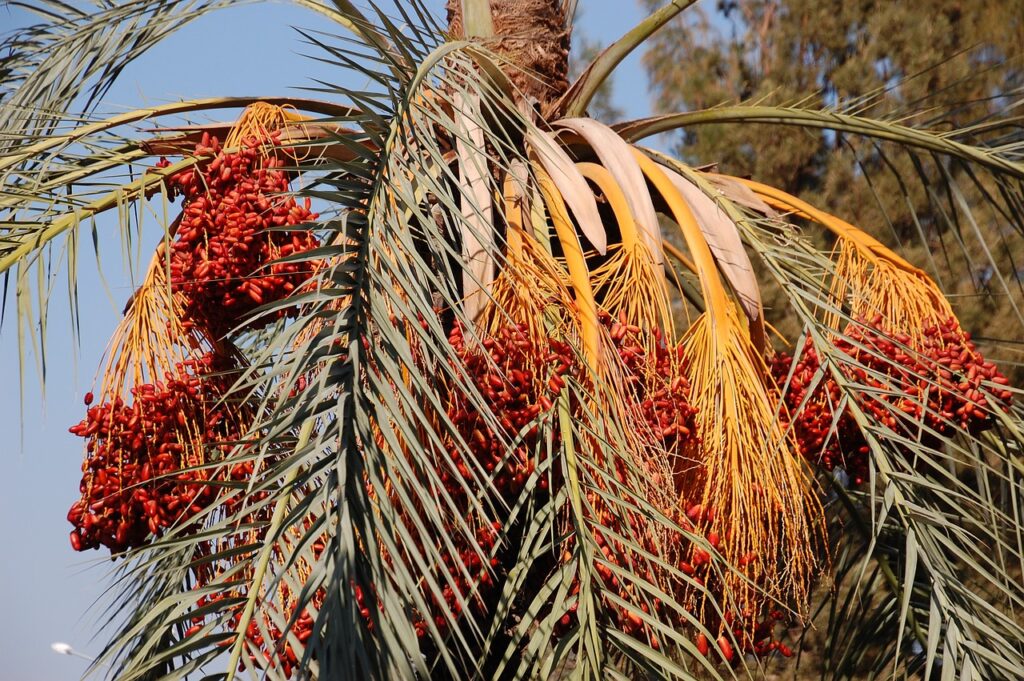
11. Baskets & Wooden Spoons
Shopping in Marrakech offers endless options, but if you’re looking for more Moroccan gift ideas, consider basketry and wooden spoons. Basketry is abundant in Morocco, available in a variety of sizes. The simple palm fiber baskets with leather handles are particularly charming, and many people collect them as souvenirs.
While they can be bulky, these baskets are some of the finest available. On the other hand, wooden spoons make excellent Moroccan keepsakes and are much easier to pack, making them a practical gift choice.

13. Spices
Spices are a core element of Moroccan culture and cuisine, making them a must-buy during your shopping trip. In Marrakech, the Place des Epices is a vibrant destination with numerous shops brimming with colorful, aromatic spices. The experience is just as thrilling as shopping for shoes, with the irresistible blend of sights and scents drawing visitors in.
Moroccan spice mixes are truly captivating, and it’s easy to get carried away with so many choices. Authentic spices make wonderful, memorable gifts. Some of the key spices found in Marrakech include ginger, black and white pepper, paprika, cayenne pepper, cinnamon, cumin, saffron, anise, nutmeg, fenugreek, and of course, the complex ras el hanout—a signature Moroccan seasoning blend. These spices bring the essence of Morocco to your home.
